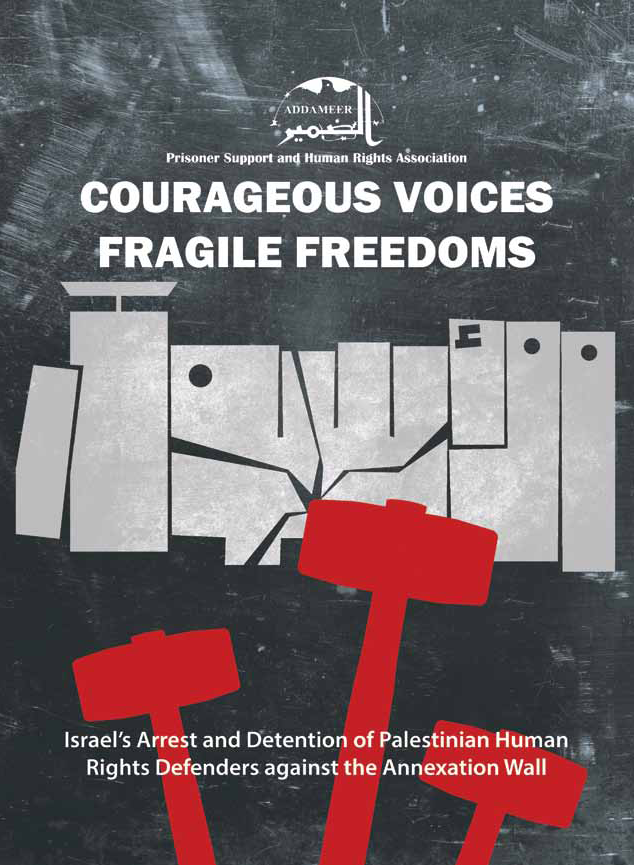Tag: Administrative Detention
-
PHOTOS: Palestinians rally in Gaza for hunger-striking and sick detainees
2nd March 2014 | International Solidarity Movement, Gaza Team | Gaza, Occupied Palestine In recent weeks, protests for both sick Palestinian detainees and those engaging in long-term hunger strikes have increased in the Gaza Strip. Last Monday morning, following a regular weekly sit-in in the International Committee of the Red Cross’ Gaza office, demonstrators rallied…
-
Addameer Releases Latest Report on the Continued Targeting of Palestinian Human Rights Activists by Israeli Forces
13th January 2014 | Addameer Prisoner Support and Human Rights Association | Ramallah, Occupied Palestine Addameer Prisoner Support and Human Rights Association are pleased to announce the publication of its latest report ‘Courageous Voices, Fragile Freedoms’. The report examines Israel’s increasing use of arrest and detention of Palestinian human rights activists taking part in protests and…
-
“No-one can explain to me why”
22 May 2012 | International Solidarity Movement, Nablus Team | Kafr Qalil, Occupied Palestine The Israeli army invaded seven family homes in the village of Kafr Qalil, south of Nablus, between 1am and 2am on 20th May. They trashed the properties and people’s possessions and stayed in them for several hours apiece. Lastly, they arrested…


